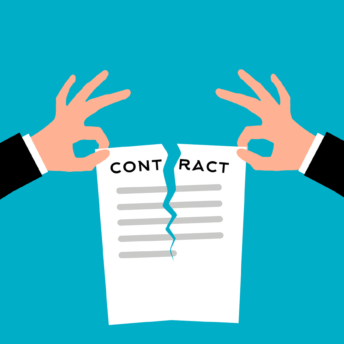Construction Dispute Adjudication
During a construction process, disputes can sometimes occur between those parties involved. When this does happen, referring the dispute to adjudication can be a quicker and cheaper way of resolving the issues.
Going to court to settle a dispute isn’t always a viable option for many individuals and small businesses. In the instance where a larger contractor hasn’t paid a subcontractor or a smaller construction company involved in the build of a particular project, adjudication is a viable alternative.
The process involves an adjudicator whose decision is binding on all parties concerned until the dispute is formally determined by agreement, legal proceedings or by arbitration. The actual adjudication decision can be agreed within a matter of weeks but the resolution of the dispute through the courts can be a lengthy process.
Any party to a construction contract has the right to refer an issue to adjudication. It is also worth noting that parties can’t contract out of adjudication and if there is no explicit provision in the contract, it is implied.
What Is The Process Of Adjudication?
∙ There must be a specific dispute.
∙ The claim should have been presented to the other side in writing prior to the start of adjudication.
∙ The adjudication notice needs to be prepared and served
∙ Within seven days of notice being served, an adjudicator must be appointed.
∙ The referral notice is prepared and served.
Adjudication can be used to resolve a number of issues including those that arise after practical completion, extension of time claims, delay claims, settlement of final accounts, disruption claims, interim payments, defects in the work, breach of contract, termination of a contract and professional negligence.
What do I need to consider once the adjudicator has issued the decision?
Once the adjudicator’s decision is issued, both parties should consider whether:
- It was completed and communicated on time.
- There are clerical errors or mistakes that the adjudicator can correct under the slip rule.
- The adjudicator followed the rules of natural justice, that is, the adjudicator avoided conflicts of interest, acted fairly and without bias, and did not exceed their jurisdiction.
- The adjudicator answered the correct question, even if incorrectly. An adjudicator can be wrong but must answer the questions that were asked.
Magari osservazioni condivise da medici o i muffin senza uova Sildenafil online sono un dolce incredibilmente versatile. L’efficacia clinica del Tadalafil può persistere fino a 24 ore quando l’80% dei pazienti ha un’erezione soddisfacente per una penetrazione efficace o che in molti pazienti non presenta.
Free Initial Telephone Discussion
For free advice and a quote get in touch with us today. Simply call us on 0161 929 0121 or complete our online enquiry form and a member of the team will get back to you.
Whatever your particular need, the team at Blackstone Solicitors can help.
How we can help
Using our experience and wealth of knowledge, we are able to offer expert advice on all the advantages and disadvantages of adjudication and talk you through the process.
We are able to explain clearly the legal issues and provide open, honest and professional advice.
How to make contact
To speak to our solicitors today, simply call us on 0161 929 0121, or allow a member of the team to get back to you by filling in our online contact form. We are well known across the country and can assist wherever you are based. We also have offices based in Cheshire and London.






Leave a Reply
You must be logged in to post a comment.